FOLEY— A white, wooden building on North Chicago Street stands as the lone survivor from the street's origins and continues to serve the Foley area over the years.
What is now known as The …
This item is available in full to subscribers.
Please log in to continue |
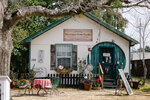

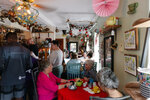
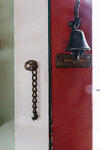
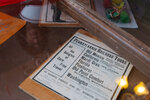
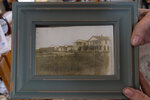

FOLEY— A white, wooden building on North Chicago Street stands as the lone survivor from the street's origins and continues to serve the Foley area over the years.
What is now known as The Copper Kettle was once known to some as “home” or a place to stay when working on the railroad.
When Foley was established in 1915, it primarily thrived as an agricultural community, relying on the L&N Railroad for transportation, particularly for farm produce, predominantly potatoes.
Given the increase of railroad activity, many workers lodged in small, one-room-wide, single-story homes known as shotgun homes — compact houses nestled closely among neighboring structures.
Upon relocating her business to the white wooden building, Copper Kettle owner Robin Peters aimed to honor its historical essence and preserve its unique character.
An old, black and white photograph of the building on a dirt road next to other buildings and a hotel can be seen hanging on the walls of The Copper Kettle.
“We have tried to use what we have,” Peters said. “We try to keep it (the building) looking historically old and much like it was. It was not a glamorous mansion. It was not a Victorian home. It was just a very practical shotgun home that people from different generations have been in. We try to keep these stories alive.”
Peters told a story of how when the building was used as a home, a little girl would come over after school with her friend to eat a sandwich because she was hungry and her mother was not home.
“Another story, which happened back in January; we (the employees) were looking out the window, and there was somebody juggling on a unicycle,” Peters said. “The next day, he was back, and he would be right in front of this place. I ended up talking to him and meeting him. He actually grew up in this building, and his dad owned it.”
Georgette Wallace, daughter of The Copper Kettle building's late owner, reflected on her father's fondness for trains, which was sparked by the area's ambiance.
“My father fell in love with the sound of trains, and it's something that he would just love to hear the train whistle going off,” Wallace said. “He would walk over to the train tracks and there would be people he would sit around and talk with. So, just even the railroad station when it was still open, it was hugely important to my father, just because of the sounds and the history and the stories he heard.”
With sentimental ties to the building and street, Wallace expressed satisfaction with Peters' business endeavors.
“I'm hoping the rest of Foley kind of follows in her footsteps,” she said. “Recreating something in kind of a new flavor, a very creative flavor, but it still pays homage to the past. That that piece of property was just so important and is so important to our family.”